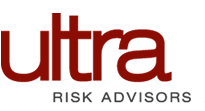September 14th, 2012
by Michelle Foster Earle
This is the first entry in a series of blog posts covering all aspects of managing the media during a healthcare crisis. Being prepared to handle the media during a crisis is an essential aspect of successful management.
In this series we will cover:
- The initial response and disaster planning.
- Crisis communications.
- Selecting and training a spokesperson.
- Dealing with the media and prospecting after the crisis.
From the newly opened picture perfect medical practice to the health facility with a long history of serving the community, crises are a real risk of everyday operations. And while ready to take on the life and death challenges of their patients, many medical facilities and healthcare providers are ill prepared to deal with a potential onslaught of media during or following a crisis.
Imagine the scenarios: An employee loses a laptop with hundreds of patients’ information, a treatment or procedure results in an adverse outcome and the local paper gets a call, an outbreak causes your facility to temporarily cease admissions, a disgruntled employee fires a weapon, a doctor is investigated for over prescribing pain medication, the facility must evacuate due to a fire or natural disaster, a patient with dementia becomes combative and harms another patient … it happens. And it can happen to you. Be prepared. From media coverage to reputation management to possible litigation, a public relations and media management plan is the best way to minimize the damage of an unplanned event.
Start with the Disaster Plan
As with disaster planning, managing the media and community opinion is essential to the survival of the facility and its reputation. When compiling a disaster plan, incorporate public relations and media management as part of the plan. Evacuating a facility full of frail patients is a crisis. Answering to the media in the midst of confusion can be a double disaster. By adding Public Relations Management to your Disaster Plan, media can become an asset instead of an adversary.
Designate a Team
Be prepared for the media to approach employees to get the “scoop” in the crisis. The safety of patients is the primary concern for health care staff and you likely have already designated a Crisis Team and outlined each member’s role as part of your preparedness plans. Train general staff members to refrain from speaking to the media. Instead, inform all of your staff which of their Crisis Team Members will take on the role of media correspondent. You may even want to supply these Crisis Team members with identification badges (kept as part of the Disaster Kit) with titles such as “Public Relations Officer” or “Media Consultant” so the media knows they are dealing with the single person in the facility that can provide them with news.
Anticipate
When you meet with your team to designate duties, plans and the tools necessary for disaster and crisis planning, examine the following questions:
- How are visitors to be managed during a crisis?
- What can be done to manage the possibility that families will speak to the media?
- Who is responsible for keeping the Crisis Management phone tree up to date?
- Who is responsible for creating a media packet?
- What can the insurance company’s risk management team do to assist?
In the next blog entry in this series, we will cover crisis communications.







COMMENTS
No comments yet. You should be kind and add one!
The comments are closed.